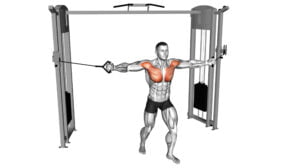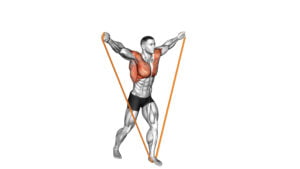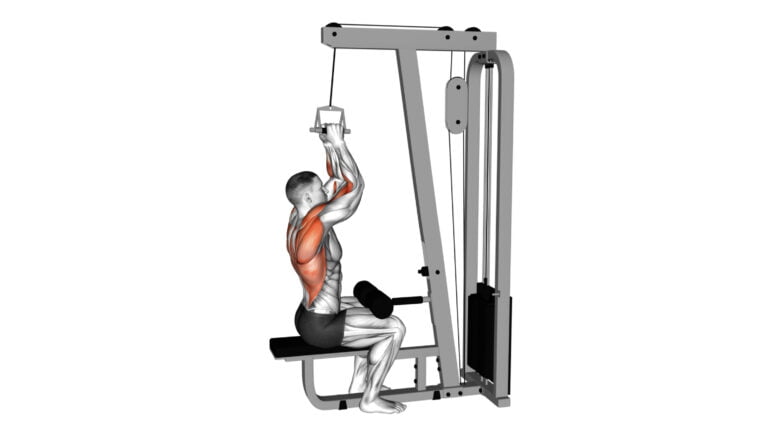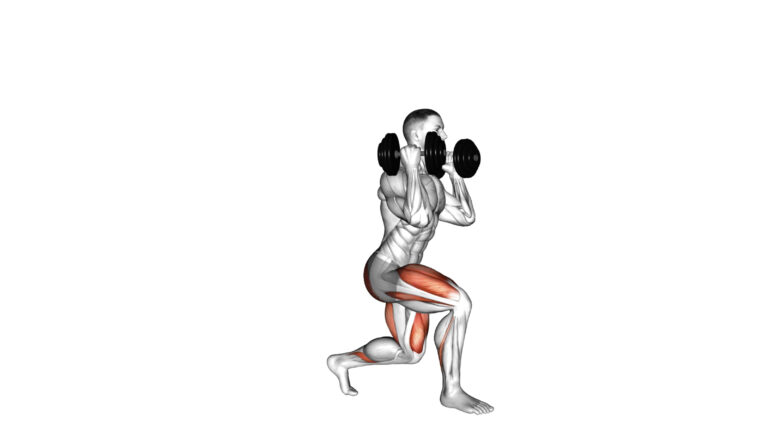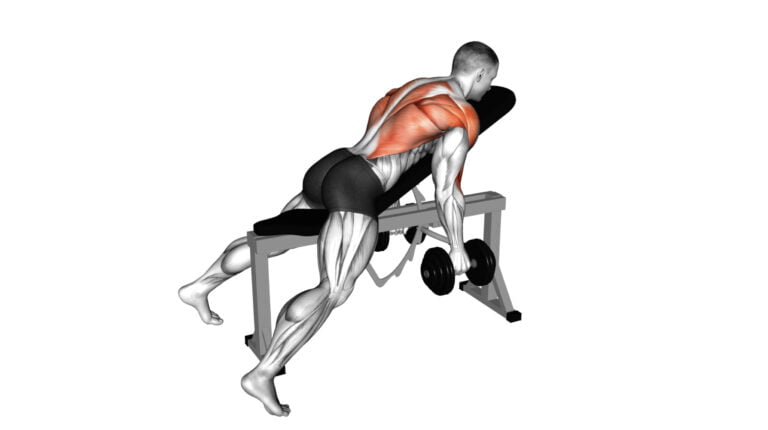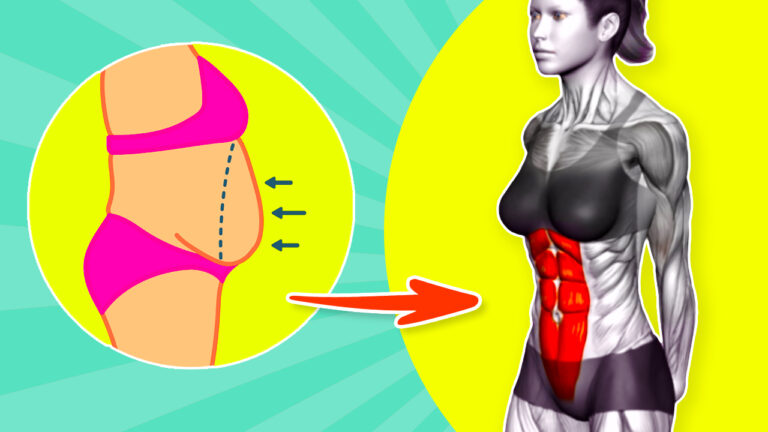Back Superset Workouts For Building Strength And Mass
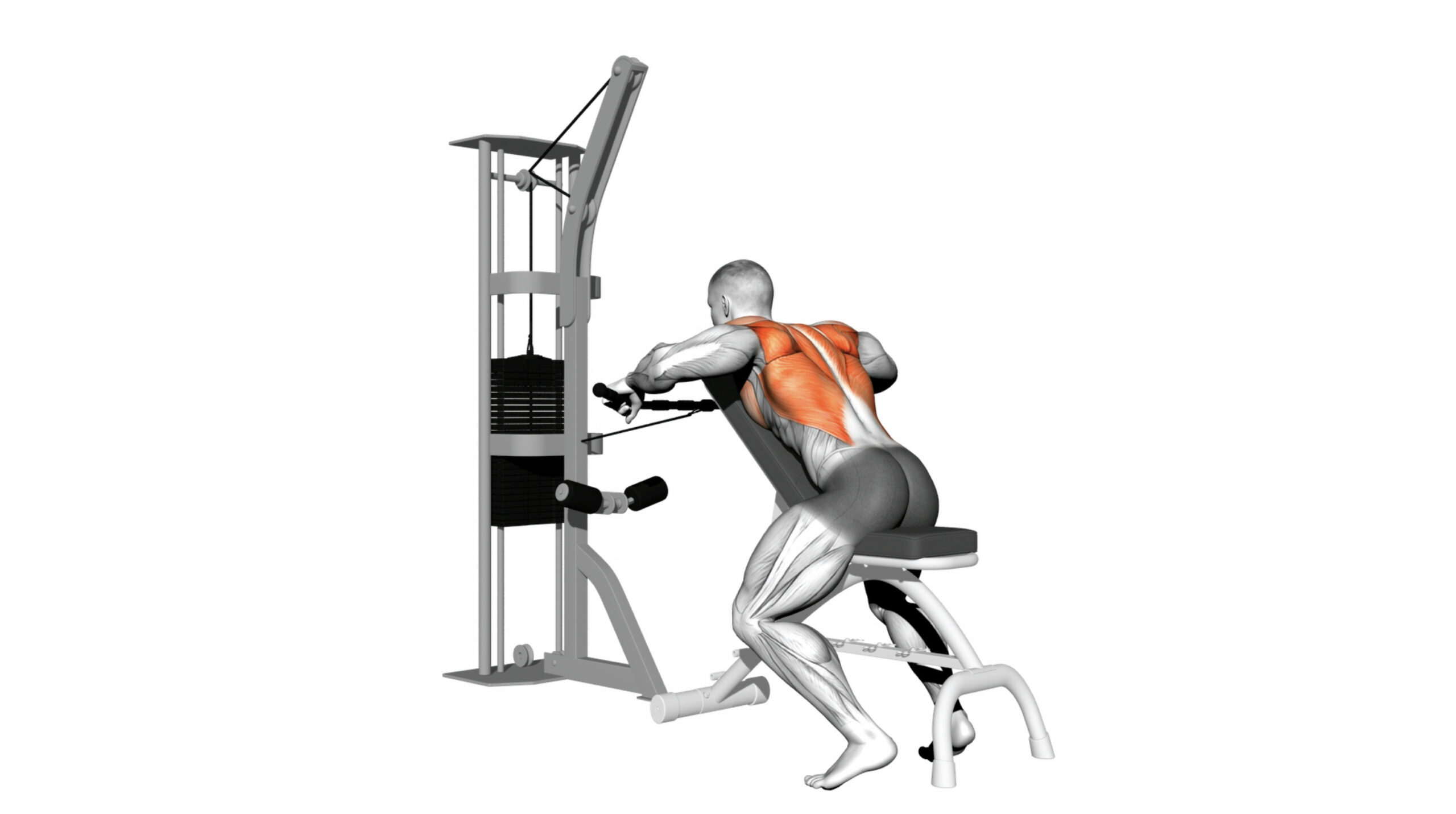
Crafting an effective back workout that drives strength and mass gains can be a puzzle for many. But, armed with years of experience in fitness coaching and personal bodybuilding, I’ve cracked the code to optimizing your routine using back superset workouts.
These techniques leverage a strategic blend of exercises to push your muscles beyond their comfort zone, ensuring every session brings you closer to your goals.
Supersets are not just another buzzword in the gym; they’re a science-backed method to amplify your workout efficiency and muscle growth. This guide distills expertise into practical advice on leveraging this powerful technique specifically for targeting the back—arguably one of the most critical areas for any serious bodybuilder or fitness enthusiast aiming for an imposing physique.

Ready? Let’s unlock significant gains together!
Key Takeaways
- Supersets help build back strength and mass by pairing two exercises with little to no rest in between. This makes gym time more efficient and boosts muscle growth.
- Different types of supersets, like antagonistic, agonistic, and compound sets, target various muscle groups for balanced development. Choosing the right type can enhance workout effectiveness.
- Key back superset exercises include Rocky Pull-up Pulldown + Dumbbell Palm Rotational Bent-Over Row and Lever Cross Lat Pulldown + Cable Underhand Pulldown. These workouts hit different parts of the back for better strength and mass.
- Incorporating a mix of push and pull movements prevents overuse injuries by giving muscles varied challenges. Alternating these types helps keep workouts interesting and effective.
- Proper form, progressive overload, and supplementation can maximize gains from back superset workouts. Paying attention to these aspects ensures safety while encouraging continuous improvement in muscle growth.
Understanding Supersets for Building Back Strength and Mass

Supersets make your back stronger and bigger. They join two exercises with no break, like a tag team for muscles. Back superset workouts pack a punch, getting more done in less time.
Benefits of Supersets
Supersets make your gym time more effective. By doing two exercises back-to-back without rest, you give muscles a serious workout in less time. This method boosts muscle growth and strength, especially for your lats, shoulders, and arms.
It’s like doubling down on your efforts every session.
Using supersets also ramps up how much fat you burn during workouts. Since there’s little to no break between sets, your heart works harder. This means more calories burned compared to traditional lifting where breaks are longer.
You get stronger and leaner with exercises like lat pulldowns and pull-ups done this way.
Types of Supersets
Supersets are a great way to build back strength and mass. They make your workout more effective by saving time and boosting intensity. Here’s what you need to know about different types of supersets:
- Antagonistic Supersets involve working opposite muscle groups in succession. For your back, this could mean pairing a pull-up, which targets the upper rear body muscles like latissimus dorsi and teres major, with a push-up that works the chest and front shoulder muscles. This type of superset lets one muscle group rest while the other works, allowing you to lift more weight or do more reps.
- Agonistic Supersets focus on the same muscle group with two different exercises. An example for building back mass might be doing a set of barbell rows immediately followed by dumbbell rows. Both exercises work your upper rear body but hit the muscles slightly differently for maximum growth.
- Staggered Supersets involve doing an unrelated exercise between sets of your main lift. You might do calf raises between sets of deadlifts for example. While not directly targeting the back, this method keeps you moving and adds extra volume without overtaxing the primary muscles you’re working on.
- Pre – Exhaustion Supersets start with an isolation movement before a compound exercise that uses the same muscles. Starting with rear delt flies on a machine before hitting multiple back muscles on deadlifts can ensure those smaller muscles get worked thoroughly without being overshadowed by stronger areas.
- Post-Exhaustion Supersets, flip pre-exhaustion on its head by doing a compound movement first followed by an isolation exercise. Pulling off heavy deadlifts then finishing with targeted grip flexor movements allows for broader muscle recruitment followed by focused fatigue on specific parts of your back.
- Compound Sets are like agonistic supersets but even tighter in focus—they use very similar motions to hit exactly the same muscle area, just through slightly varying angles or positions for nuanced development.
With these superset strategies, tailoring workouts to meet individual strength and mass goals becomes easier… Now let’s dive into some specific exercises that fit perfectly into these superset frameworks!
Best Back Superset Exercises for Building Strength and Mass
For those aiming to boost their back strength and mass, selecting the right exercises is key. Back superset workouts mix two moves without a break, pushing you harder and helping your muscles grow.
Rocky Pull-up Pulldown + Dumbbell Palm Rotational Bent-Over Row
Start with a Rocky Pull-up Pulldown. Grab the pull-up bar and pull yourself up. Your chin should go over the bar. Then sit at a cable machine, select your weight, and pull down until your hands are by your sides.
This targets shoulder muscles and upper back. Next, take two weights for Dumbbell Palm Rotational Bent-Over Row. Bend forward from your waist, keep your spine straight, and let the dumbbells hang in front of you.
Rotate wrists so palms face behind you as you lift the weights towards your belly.
Do these moves one after another without resting to make a super set. It boosts strength in biceps, shoulders, and back muscles differently than normal exercises alone would do. With each rep focus on control—don’t rush it! Switching between pulling yourself up on a bar then pulling weights towards you mixes things up for muscles keeping growth constant.
Lever Cross Lat Pulldown + Cable Underhand Pulldown
Mixing Lever Cross Lat Pulldowns with Cable Underhand Pulldowns gives your back muscles a tough workout. You pull down weights from above your head using a machine for the first exercise.
This move hits your upper back and sides. Then, you grab a cable machine with palms facing up and pull down. This targets lower parts of your back. Both moves together work all parts of your back.
Doing these exercises one after the other helps build muscle fast. Your arms, especially around the elbows, get stronger too. Keep your shoulder blades pulled together during each lift to protect yourself and make sure you’re working the right muscles – like rear delts and rotator cuffs.
Change how much weight you use to keep challenging yourself and grow bigger muscles.
Dumbbell Bent-Over Reverse Row + Cable Pulldown (pro lat bar)
For building back strength and mass, pair a dumbbell bent-over reverse row with a cable pulldown using a pro lat bar. Start by bending over with knees slightly bent and pulling weights up to your chest.
Keep your back straight. This move hits your upper back hard. Then, move to the cable machine for pulldowns. Use the pro lat bar for this part; it helps work more of your back muscles, especially the wide ones on either side, known as lats.
This combo amps up muscle work in less time. The first exercise uses free weights which are great for balance and core strength since you control their path. The second involves cables that keep muscles under tension longer for growth boosts.
By switching between these two, you hit different parts of the back for full development without resting too much in between sets—perfect for those aiming to push their limits and grow bigger.
Barbell Incline Row + Barbell Pullover
For building a strong back, try the Barbell Incline Row followed by the Barbell Pullover. You lie on a slope bench for the row. Grip a barbell with both hands. Pull it towards your belly.
Keep your back straight and squeeze shoulder blades together. This move hits your upper back muscles hard.
Next, do the Barbell Pullover. Stay on the same bench but switch gears to work more of your lats — those big muscles on your back side under the arm pits. Hold a barbell over your chest with straight arms, then slowly lower it behind your head and bring it back up.
It’s like making an arc in the air with the weight. This exercise not only targets those wing-like muscles but also stretches them out for better flexibility and reach.
Cable Cross-over Lateral Pulldown + Cable Decline Seated Wide-grip Row
This combo targets your back from different angles. Start with the cable cross-over lateral pulldown. It works on pulling muscles across your upper body, focusing on the sides of your back.
You’ll need a cable machine for this. Stand in the middle, grab each handle, and pull down in a wide arc until your hands are by your sides. Keep your core tight.
Next, shift to the cable decline seated wide-grip row. Sit on a bench and choose a wide grip on the bar attached to the low pulley row machine. Pull toward you, keeping your back straight but slightly leaning forward from the hips.
This hits lower back muscles hard, making them stronger and bigger.
After these two exercises, consider adding some push movements to balance out your workout routine.
How to Incorporate Supersets into Your Back Workout Routine

Sliding back superset workouts into your routine spices things up and amps up the challenge. To get it right, think about mixing different types of moves in a smart way and plan out your rest times to keep things balanced.
Recommended Sets And Reps
Sure, let’s dive into a crucial part of your back superset workouts. We’re talking sets and reps here. This table gives you a clear guide on how to structure your exercises for optimal strength and mass gains.
| Exercise Pair | Sets | Reps per Exercise |
|---|---|---|
| Rocky Pull-up Pulldown + Dumbbell Palm Rotational Bent-Over Row | 4 | 8-12 |
| Lever Cross Lat Pulldown + Cable Underhand Pulldown | 3 | 10-15 |
| Dumbbell Bent-Over Reverse Row + Cable Pulldown (pro lat bar) | 4 | 6-10 |
| Barbell Incline Row + Barbell Pullover | 3 | 8-12 |
| Cable Cross-over Lateral Pulldown + Cable Decline Seated Wide-grip Row | 4 | 10-14 |
This table outlines a mix of exercises designed to hit every part of your back. They include both pull and row movements, ensuring comprehensive development. Start with lower reps for heavy lifts to build strength. Increase reps for lighter, more isolating lifts to encourage muscle endurance and growth. Keep breaks short to keep the intensity up, but ensure they’re long enough to maintain form. Listen to your body. Adjust as needed. You’re building a stronger, more massive back, and this guide lights the way.
Setting up a Superset Routine

To set up a superset routine, first choose two exercises that work different parts of the back. You might pair a pulling up move like lever cross lat pulldown with a pushup move such as cable underhand pulldown.
This mix helps you work all areas without overdoing it on one spot. Plan to do three to four sets of each pair, aiming for 8-12 reps per exercise. It’s key to keep moving between the moves with little rest – this keeps your muscles working hard and growing.
Keep track of your progress. Use a notebook or an app to write down how many reps and sets you do, along with the weight used for each session. Over time, try to lift more or add more reps.
This is called progressive overload – it’s crucial for building strength and mass in your back muscles. Also, make sure you give yourself some days off between these intense sessions; your muscles need time to recover and grow stronger.
Alternating Between Push and Pull Movements
Switching up between push and pull movements keeps your workout fresh. It’s like mixing things up to keep muscles guessing. This way, you work different parts of your upper body in a smart sequence.
For instance, after doing a set of pulldowns (a classic pull movement), shift gears and go for push-ups or chest presses. This back-to-back method fires up both the muscles that pull things towards you and those that push away.
This approach isn’t just about variety; it helps prevent overuse injuries too. Imagine driving the same route every day—you know it so well, you could do it with eyes closed, but the journey gets dull.
Now think of your muscles in the same way. If they always do the same thing, they get bored (metaphorically speaking) and stop growing strong and big. By switching from moves like flys (pull) to presses (push), every muscle gets its turn in the spotlight without getting worn out.
Rest and Recovery
Taking time for rest and healing after your workouts is key. Your muscles need this break to get stronger and bigger. Think of it like giving them a chance to breathe and heal from the hard work they just did.
This isn’t slacking off—it’s an essential part of growing muscle.
Make sure you’re not working out the same muscle groups two days in a row. Give them at least 24 hours to recover before hitting them hard again. And don’t forget about sleep! Getting enough shut-eye is crucial because most of the repair happens when you’re snoozing.
So, aim for plenty of sleep each night to help your body rebuild stronger than before.
Tips for Maximizing Your Back Superset Workout

To make the most out of your back superset workouts, focus on keeping your form strong. This ensures every lift counts and helps avoid injury. Keep pushing yourself a bit more each time to see continuous growth.
Add some good food and rest into the mix for even better results. Dive in, give these tips a try, and watch your gains soar!
Proper Form and Technique
Getting your form right is key to a solid back workout. Keep your pelvis steady and engage those core muscles. This helps protect your lower back while you lift. For pull-ups or rows, focus on pulling from the upper body muscles, not just the arms.
Think about drawing your shoulder blades together, as if squeezing a pencil between them.
Breathing matters too—inhale when you lower weights and exhale on the lift. And always start with weights that let you keep good form through all sets and reps. Too heavy? You risk injury and less effective workouts.
Next up, let’s talk about how to gradually increase load for bigger gains without hurting yourself—progressive overload awaits!
Progressive Overload

After getting the hang of proper form and technique, it’s time to step up your game with progressive overload. This means you slowly increase the weight or reps in your exercises over time.
Think of it like leveling up in a video game. Your muscles need tougher challenges to grow bigger and stronger.
You can boost weights, do more reps, or even shorten rest times between sets. All these methods push your muscles out of their comfort zone, making them adapt by getting larger and mightier.
It’s like telling your body, “Hey, we’re moving heavier things now; let’s beef up!” Keep track of your progress and make small increases regularly for the best results.
Supplementation for Enhanced Results
Pushing yourself with progressive overload is key, but so is what you put into your body. Supplements help you recover faster and build more muscle. Think of them as helpers in your journey to get stronger and bigger.
It’s smart to use protein shakes, vitamins, and minerals. They fill gaps in your diet and make sure your muscles have everything they need to grow.
You also want to look at creatine and BCAAs (branch-chain amino acids). Creatine gives you energy for those heavy lifts. BCAAs help fix the damage from a tough workout. This way, you’re ready sooner for the next push-up or dumbbell row.
Eat well, lift hard, and use supplements smartly—this trio keeps your back growing strong.
Conclusion

We’ve walked through the world of back superset workouts, from why they’re great to how you can use them to build strength and mass. These exercises mix things up in your routine, keeping muscles guessing and growing.
It’s all about using your time well; with these supersets, you get more work done in less time. If you’re looking for more ways to level up your fitness game or need extra tips on form and technique, plenty of resources are out there waiting for you.
So grab those weights and remember—every rep brings you closer to your goals; keep pushing forward!
FAQs
1. What’s a good starting exercise for back strength?
Start with push-ups! They’re great for building up those back muscles, especially when you focus on keeping your pelvic area stable and using your flexors.
2. Can I do compound exercises for my back at home?
Absolutely! Try the lawnmower pull; it’s like mowing your lawn but better for your muscles. Stand firm, keep that thoracic area—your upper back—in check, and pull away!
3. How important is posture during these workouts?
Super important! Standing in the right position helps target the right muscles—like making sure your spine is all lined up when you’re doing retraction moves or anything else.
4. Any tips to make these exercises more effective?
Yes, keep those elbows flexed and think about squeezing every muscle as you move. This way, even simple movements can help build mass and strength faster.

Author
Years ago, the spark of my life’s passion ignited in my mind the moment I stepped into the local gym for the first time. The inaugural bead of perspiration, the initial endeavor, the very first surge of endorphins, and a sense of pride that washed over me post-workout marked the beginning of my deep-seated interest in strength sports, fitness, and sports nutrition. This very curiosity blossomed rapidly into a profound fascination, propelling me to earn a Master’s degree in Physical Education from the Academy of Physical Education in Krakow, followed by a Sports Manager diploma from the Jagiellonian University. My journey of growth led me to gain more specialized qualifications, such as being a certified personal trainer with a focus on sports dietetics, a lifeguard, and an instructor for wellness and corrective gymnastics. Theoretical knowledge paired seamlessly with practical experience, reinforcing my belief that the transformation of individuals under my guidance was also a reflection of my personal growth. This belief holds true even today. Each day, I strive to push the boundaries and explore new realms. These realms gently elevate me to greater heights. The unique combination of passion for my field and the continuous quest for growth fuels my drive to break new ground.


